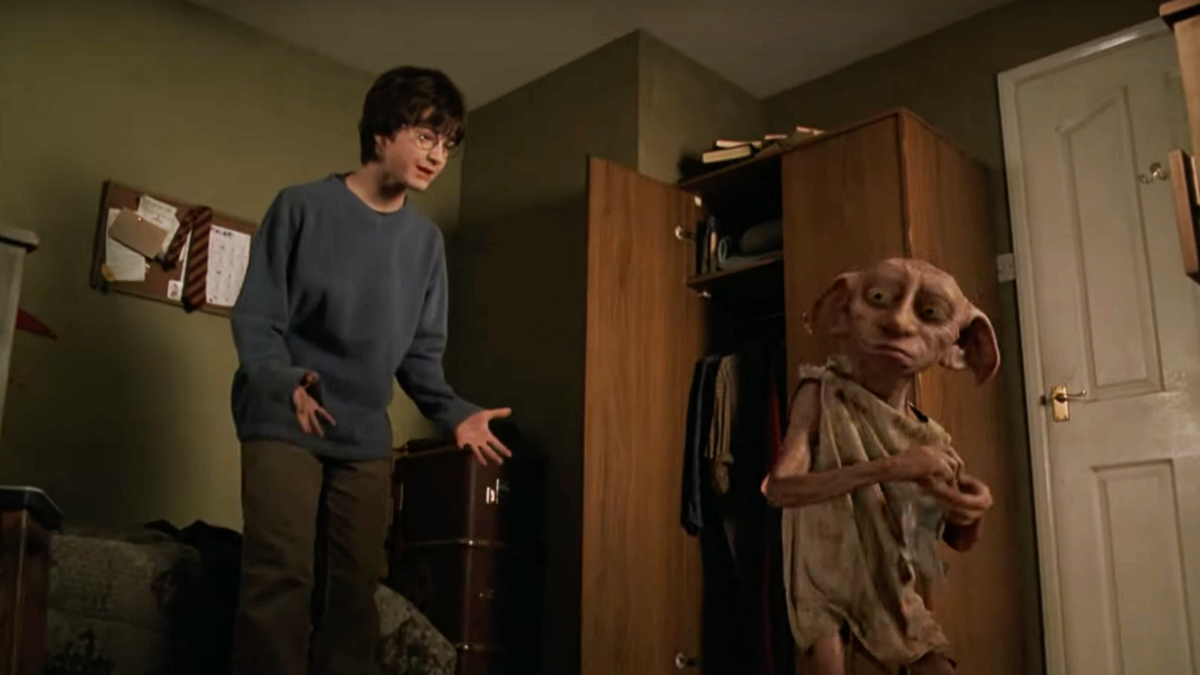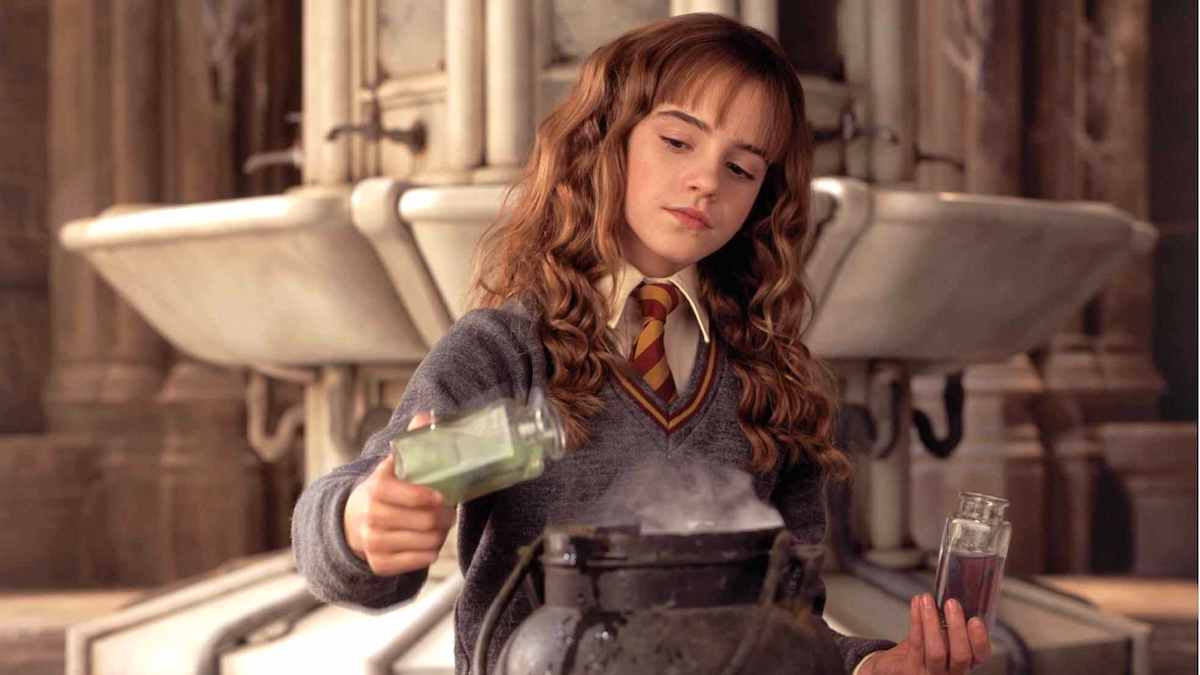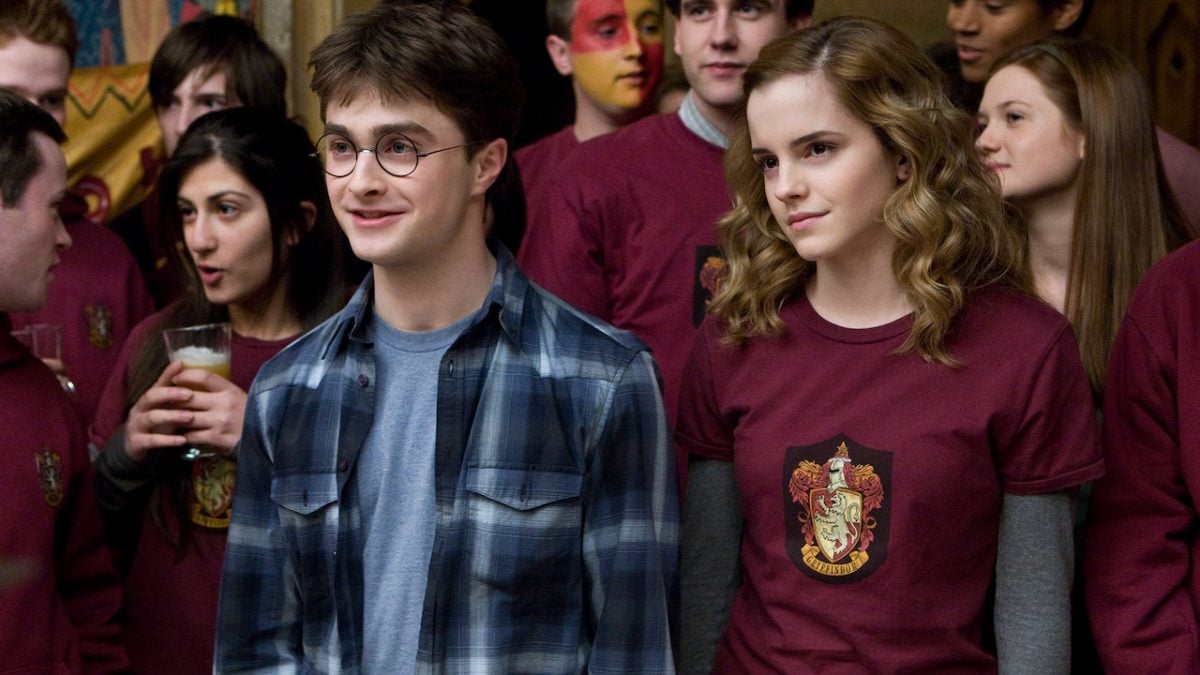It’s happening, whether we want it to or not. Warner Bros. Discovery has officially announced that a Harry Potter TV series is coming, an ambitious seven-season small-screen adaptation which will cover the entire saga of The Boy Who Lived From The Sorcerer’s Stone through The Deathly Hallows. Of course, fans are questioning whether this is even necessary given the universally adored movie series, which only wrapped up 12 years ago.
However, the studio seems keen to stress that the TV series will be much more “faithful” to the original novels. It is a fact that, while Wizarding World lovers watch the eight films over and over, the fandom has long complained about the various subplots, backstories, and occasionally even whole characters that were junked along the journey from page to screen. Presumably these will all now be reinstated in the TV series.
And that probably includes S.P.E.W., something that the book readers will know all about but those who’ve only seen the movies will not. Is it true that you have no clue about S.P.E.W.? We’re not going to sue, just give this a read-through…
What’s the deal with S.P.E.W. and what does it stand for?

First established in Harry Potter and the Goblet of Fire, the Society for the Promotion of Elfish Welfare (aka S.P.E.W.) is an organization — a term here used loosely — established by Hermione Granger to campaign against the cruel treatment of house-elves in Wizarding society.
Hermione was shocked and saddened when she witnessed Barty Crouch Snr.’s callous disregard for his house-elf Winky’s feelings during the 1994 Quidditch World Cup. Specifically, Crouch had ordered Winky to secure a seat for him in the stadium’s Top Box, despite the elf’s debilitating fear of heights.
Once back at Hogwarts, Hermione realized that the school’s food was prepared by house-elves, something she likened to “slave labor.” After this, she created S.P.E.W. and strong-armed her friends, Harry, Ron, and Neville, into joining for the price of two sickles. Her initial choice of name was “Stop the Outrageous Abuse of Our Fellow Magical Creatures and Campaign for a Change in Their Legal Status,” but it proved too long to fit on a button.
Why was S.P.E.W. cut from the movies and why is it controversial?

Despite S.P.E.W.’s connections to the wider plot of Goblet of Fire, it’s never mentioned once in the movie adaptation, nor is it integrated into The Order of the Phoenix, The Half-Blood Prince or The Deathly Hallows: Part One and Two despite factoring into those novels. The reason it didn’t feature was likely simply due to time constraints on the already busy Goblet movie and it was deemed extraneous from the additional films as well. The removal of Winky from the narrative no doubt also contributed.
Perhaps it was for the best that S.P.E.W. was deleted, though, as the handling of the organization in the novels has been a constant source of fan criticism. Although her intentions are certainly noble, with many readers agreeing with her, Hermione activism for house-elves is often used as a source of comedy and is dismissed as pointless and annoying by everyone around her.
What’s more, it’s stated that the house-elves themselves are actively offended by Hermione’s actions as they are noted as being happy in their worldly situation. This view is likewise told to Hermione by various other wizards. Fans have likened this hand-waving of the house-elves’ rights to historical pro-slavery opinions in the real world.
This is just one more area, then, in which Rowling’s handling of sensitive issues which reflect our society are interpreted as being subpar. By the sounds of it, the Harry Potter series will likely bring S.P.E.W. into live-action, but the show-makers may wish to take special care when tackling the issue of Elfish Welfare.

